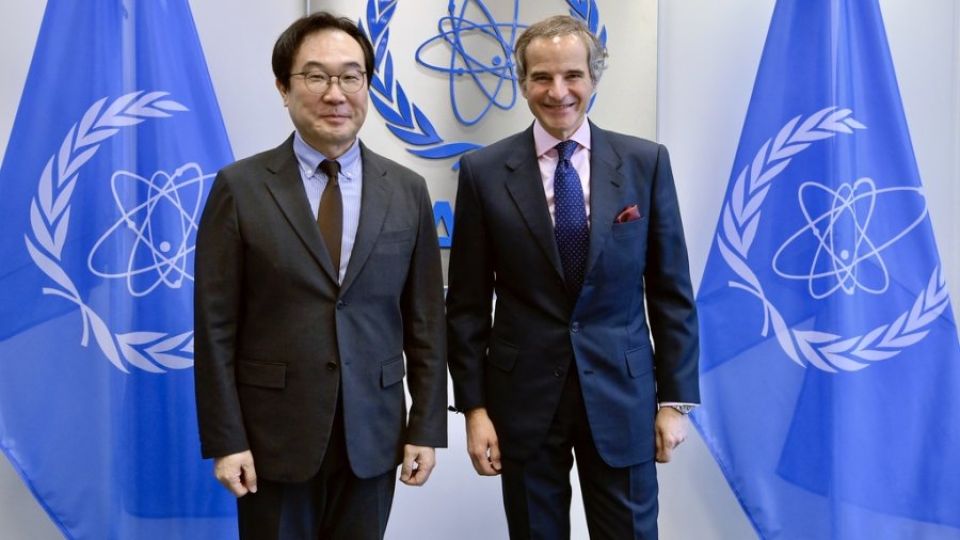March 9, 2023
SEOUL – South Korean Second Vice Foreign Minister Lee Do-hoon highlighted the need to ensure the safety of contaminated water to be released from Japan’s destroyed Fukushima nuclear plant, at a meeting with Rafael Grossi, chief of the International Atomic Energy Agency, according to Lee’s ministry.
In a ministry statement released Wednesday, Lee asked the director-general of the UN nuclear watchdog to continue communicating closely with South Korea and other countries affected by the discharge into the Pacific Ocean, having praised the organization’s efforts so far.
An IAEA fact-finding team comprising experts from 11 countries including Seoul will publish a report as early as June on whether it would be safe enough to approve of the disposal, which Japan is pushing for this spring.
Tokyo maintains it will filter radioactive water before the discharge, though critics contend that the “treated water” will still contain traces of tritium, a weak radioactive form of hydrogen that is hard to separate from water, and has a half-life of just over 12 years.
“The Fukushima water should be safe, scientifically and objectively and in accordance with international standards,” Lee said at a Board of Governors meeting, held once every five years in Vienna, Austria, shortly before meeting with Grossi.
Lee stressed that Japan should be forthright about the way it makes public information regarding the ocean release. In response, Grossi said he values South Korea’s input on the issue and that his agency seeks continued support from Seoul.
The two also debated international efforts to disarm North Korea. The nuclear watchdog, Grossi noted, stands fully ready to inspect nuclear facilities in the isolated country, which has been defying international sanctions over its nuclear and missile programs.
Lee also met with Robert Floyd, executive secretary of the Comprehensive Nuclear-Test-Ban Treaty Organization. The body, meant to police a global ban on nuclear tests, has yet to carry out on-site inspections because eight of the 44 countries listed in the treaty have not either ratified or signed it. China, Egypt, Iran, Israel and the US have not ratified it, while India, North Korea and Pakistan have not even signed it.
Lee and Floyd agreed to work closely on nonproliferation, without elaborating on what such joint work would look like exactly, according to the Foreign Ministry.


